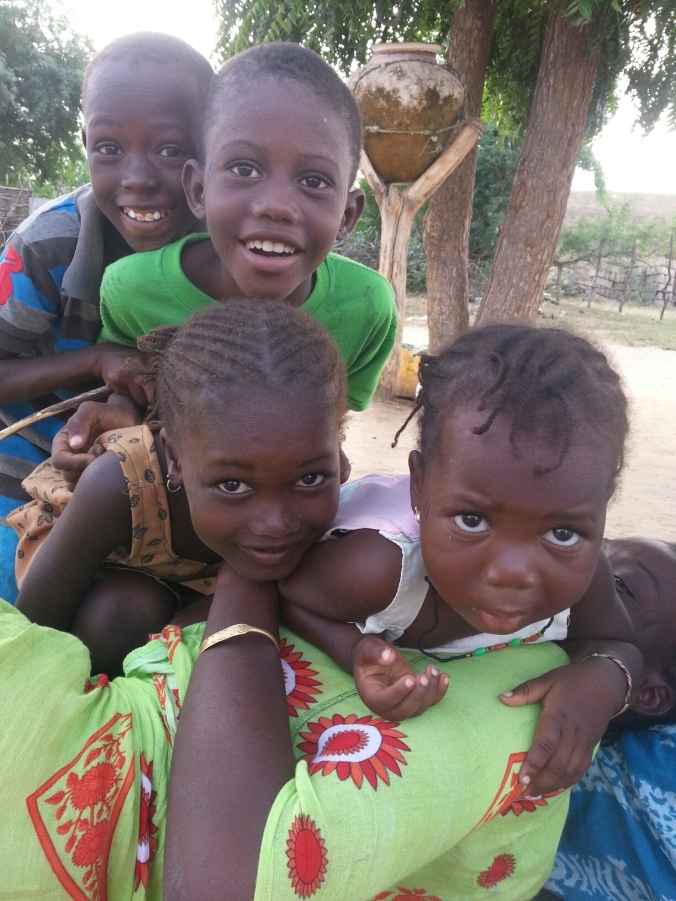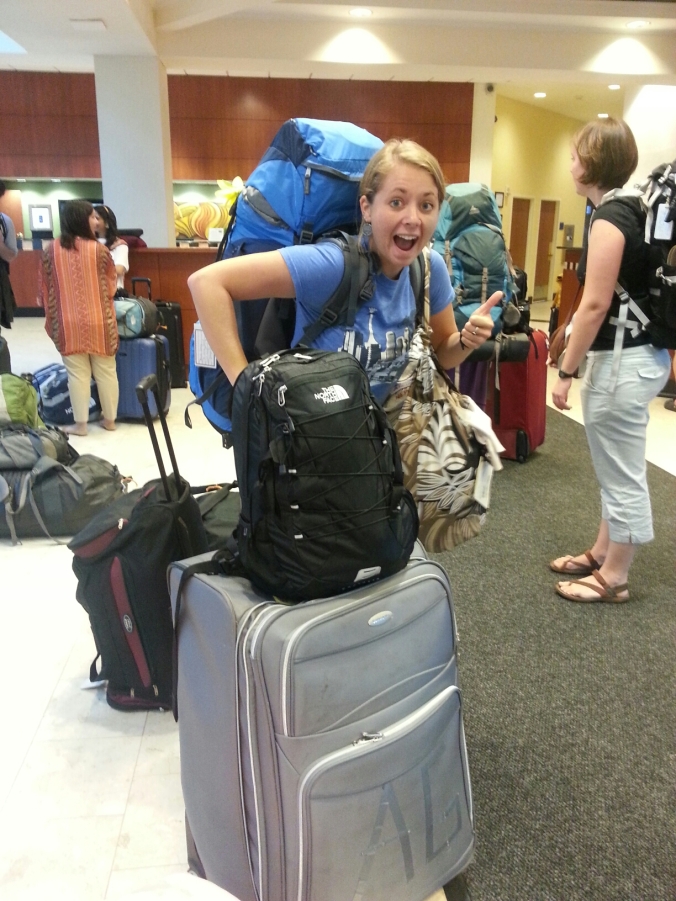Okay, so I realize it has been 3 months since my last post so I apologize for that, but here goes a little bit about my site…
Basic Geography
So, my village (don’t want to be too specific on the interweb…), is in the Fouta and is South of the Senegal River on the boundary of the Department of Saint Louis and the Department of Matam. It is in the North eastish of Senegal and has a population of less than 1000. My village is beautiful, just incredibly hot and dry. We are technically in the transitional ecozone in the Sahel (Sahelian Acacia savanna)




between the Trazra Desert to the North in Mauritania and the Tropical south of Senegal. But we are also just south of a tributary of the Senegal River.


There are three major seasons in the Fouta; daabunde (cool dry gardening season-now), ceedu (hot, dry season), and nduungu (hot with rains-very little- ~200 mm/yr). Right now it’s the “cool” and dry season daabunde, where it is nice and hott during the day, but the nights are chilly. You can only really garden during daabunde between Dec and Feb.

During the ceedu no one grows anything because there is just not enough water or strength for people to bear the heat. I have not seen ceedu yet but it is coming soon…. and I’m a little scared haha! Following ceedu the rains come (dabbunde) around July-August, but very infrequent and tend to be quite strong.
Here’s a blurb from something a past Northern AGFO wrote about the conditions where I am currently:
“Next time you have a chance, take a look at the Google Earth view of Senegal. To the south, we can see a dark and rich shade of green, but as we move progressively north, the view becomes paler and paler till we reach a mottled sort of tan at the top. Beyond to the north and east we can just begin to make out the Sahara desert, creeping along, its long fingers wiping away the last bit of color in Mauritania.
Our job is to stop that spread. And we have to do it in some pretty rough conditions. Ridiculous winds blast out of the Malian desert, rushing along at 20 to 40 km/h. Ravenous animals rip out any available grass or shrub by the end of cold season, leaving topsoil to get baked for the hot season. Your rainy season won’t hit its stride till late July and even then the rain will be sporadic and pitiful in quantity. Lastly, the local population often recognizes the need to plant trees, but lacks the tree planting culture more common in the south.
It’s not easy. No one will say it’s easy. But that’s why we have you. And you wouldn’t be here if you weren’t tough enough to be chiseled by the wind and forged by the heat. And with this guide, we can lean our backs into this encroaching monster and push it back to where it came from.”
-Gordon Day
No one couldn’t say it better than this guy. This place is amazing, and it is my home now, so it’s time to get to work. In order to reach our goal to increase food security here in Senegal as an AG volunteer, (it is my opinion) that our efforts be placed in this region of Senegal (Fouta), where desertification is real, and is encroaching further south everyday.
Behavior change?
Our goal as AGFO volunteers is essentially to plant trees and vegetation to aid in reducing the effects of climate change (for example: longer drought periods, severe wind and water erosion, reduction of agricultural land, and more dependence on foreign food sources), coupled with immense deforestation, and overgrazing.
The first part is easy… plant trees is easy right?
No.
That is why we as PCV’s are trained on not only “planting trees”, but in having a deeper understanding of the culture that is now our home. We are trained heavily in language and culture, as well as the technical and innovative approaches of farming and ecological practices of planting trees.
But in order to do any work or plant any trees… how do we get our communities to want to change?
You cannot just walk into a community and say hey, I think that you would benefit from this new way of planting trees… In my opinion, that is the biggest flaw in development work. Send a foreigner/NGO out into the field to fund some big project, set it up and leave without any follow up… for the people just to later on not understand how to take care of it or the importance and long term benefits of it.
So HOW?
It all starts with building relationships.
Cultural Integration
Okay, so I confess that the first 3 months I spent A LOT of time on talking to people, relaxing, learning the language, being present at events (such as: weddings, naming ceremonies, funerals, etc.), and not so much time “working” per say.
Then I realized… what I have done, is built relationships in my new home–just as important as “work”.
I get to spend most of my afternoons with the kids singing jingle bells, row your boat, and happy birthday or kicking a soccer ball around.




My evenings are spent sitting with some incredibly intelligent young people who might not ever get the opportunity to finish high school, let alone go to college because they get married really young or need to stay home and help their parents/significant other in the field or in the house. Not to mention most of the people who finish university (there are only 5 universities in Senegal:Dakar, Thies, Ziguinchor, St. Louis, and Bambey) do not have a job to look forward to after…


I also get to spend my days sitting under the very few shade trees in my village with some very wise women and men talking about life here in village and learning some Pulaar proverbs.

Other days, I hang out in the field that my host father works at called the Master Farm. This space is specifically meant for ag/agfo demonstrations to our community and the surrounding communities (but he has not yet done a big demonstration here… so this is something we will be doing this year…).




Through out this time, I have also attended local meetings with the heads of the surrounding villages, as well as my own village about agriculture, education, herders, water, land use, and health…
I have been to five weddings, three naming ceremonies, one funeral. I have made amazing friends in village, had conversations about American culture, religion, garden bed establishment, composting, and just about my life back in America.




I have had the opportunity to get many local clothes made as well as getting henna’ed up (local Pulaar culture of beautification for events).




So that is how?
Yes. So far… having these experiences have opened up my community to be interested in these “trainings” that I travel so far to learn about. Without spending the amount of time I have spent with my community and the people I have built relationships with, they wouldn’t care what work I came there to do… they seem to just now be interested in my work after 5.5 months of being in Senegal (but 2.5 months technically in site).
Cultural Integration: check.
So NOW it is time to get to work…What’s my next move?
Now I plan to get on with interviewing my friends and family here in village, putting together a village meeting or two, and throwing some ideas around, just to see if what I have observed is actually what my village wants and needs… ground up.
Wish me luck!

Pulaar proverb of the day: “Sessa sessa, naggat daa wojere ender ladde”
Slowly, slowly you will catch the rabbit in the woods…




























